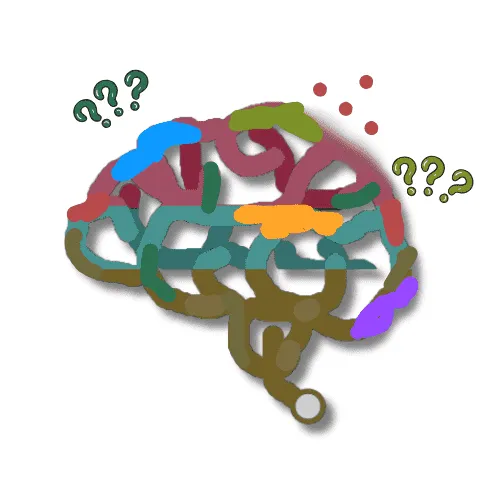Caring for and looking after someone with dementia at home is both rewarding and challenging. It requires lots of patience, planning, and ongoing support. Thankfully, the right strategies can make it easier. This free dementia care guide offers simple tips to help you care with confidence and protect your well-being too.
Understanding Dementia
Dementia is a decline in mental ability that affects memory, thinking, and behaviour. Looking after someone with dementia starts with educating and understanding these changes. Alzheimer’s disease is the most common type, but vascular dementia, Lewy body dementia, and frontotemporal dementia are also frequent.
Problem: Dementia symptoms vary and can confuse caregivers.
Solution: Learn about the specific type of dementia to offer the right support.

Early Signs of Dementia
Early signs include forgetting words, misplacing items, and struggling with everyday tasks. Sometimes, repeated questions or confusion appear first.
Problem: Early symptoms can be mistaken for normal ageing.
Solution: Seek medical advice if you notice consistent memory or behaviour changes.
Recognising Yourself as a Carer
When caring for and looking after someone with dementia at home, it’s important to recognise your role. Caring can be fulfilling, yet exhausting.
Problem: Carers often feel isolated and overwhelmed.
Solution: Accept help, connect with support networks, and acknowledge your hard work.
Support for Dementia Carers at Home
Help is available for those looking after someone with dementia at home. You don’t have to do it alone.
Problem: Many carers miss out on available resources.
Solution:
- Register as a carer with your GP.
- Apply for a Carer’s Assessment.
- Check for benefits like Carer’s Allowance.
- Join local support groups.
Moreover, these steps can reduce stress and improve care quality.
Choosing the Right Clothing
Comfortable clothing is important when looking after someone with dementia. The wrong clothes can cause confusion or frustration.

Problem: Complicated fastenings and tight clothes can upset or distress dementia patients.
Solution:
- Choose loose, stretchy clothes that are easy to put on and take off.
- Wear clothes with simple fastenings like Velcro instead of buttons.
- Stick to familiar styles and favourite colours to avoid confusion.
- As a result, dressing becomes a calm and simple task.
Ensuring Home Security
Home security is crucial when looking after someone with dementia. Dementia can cause wandering or unsafe behaviours.

Problem: Wandering and accidents can happen suddenly.
Solution:
- Install door alarms or motion sensors.
- Keep keys, medicines, and sharp objects out of reach.
- Set up safe zones and block dangerous areas like staircases.
- Use GPS tracking devices for outdoor safety.
Therefore, a secure home gives both carers and patients peace of mind.
Helping with Everyday Tasks
Keeping routines is vital when caring for and looking after someone with dementia. Simple daily tasks support independence and confidence.
Problem: Patients may forget how to complete basic tasks.
Solution:
- Involve them in small chores like setting the table.
- Use memory aids like signs and labels around the house.
- Thus, small changes can make big differences.
Managing Eating Problems
Eating and drinking issues are common in dementia. Sometimes, food is forgotten or disliked without reason.

Problem: Poor eating habits can cause malnutrition and dehydration.
Solution:
- Allow extra time for meals.
- Serve finger foods if cutlery becomes difficult.
- Offer bold flavours and sweeter options.
- Use coloured cups or straws to encourage drinking.
- Consequently, mealtimes become smoother and less stressful.
Dealing with Incontinence
Incontinence often affects people with dementia. It can be distressing for both carers and patients.
Problem: Accidents can lower dignity and cause embarrassment.
Solution:
- Create a toilet routine.
- Use signs and sensor lights for easy bathroom access.
- Consult a continence adviser for professional support.
- Therefore, preparation can ease this sensitive issue.
Coping with Sleep Disturbances
Sleep problems are frequent when looking after someone with dementia. Night waking and confusion often happen.

Problem: Poor sleep affects both the carer and the patient.
Solution:
- Maintain a regular sleep schedule.
- Use clocks showing day and night clearly.
- Ensure the bedroom feels safe and comfortable.
- Undoubtedly, better sleep benefits everyone.
Using Assistive Technology with Dementia Patients
Technology can make looking after someone with dementia easier and safer.

Problem: Safety risks and forgetfulness can cause accidents.
Solution:
- Use medication reminders and GPS trackers.
- Set up fall detection alarms and home monitors.
- Try digital calendars and voice-activated devices for memory support.
- In conclusion, technology adds an extra layer of safety and reassurance.
Finally – Looking After Yourself
When looking after someone with dementia, never forget your health. Stress, exhaustion, and sadness can build up quickly.
Problem: Caregiver burnout results in negative health effects and a decrease in the quality of care provided.
Solution:
- Seek support from family, friends, or charities.
- Join a support group.
- Consider professional counselling if needed.
- Ultimately, caring for yourself is caring for them too.
By improving the areas we discussed (like clothing, security, eating, sleeping, assistive tech, and daily tasks) directly supports the independence of dementia patients. Here’s how and why each part matters:
1. Clothing Choices
Simple, comfortable clothing helps dementia patients dress themselves longer without getting frustrated or stuck.
- Reduces the need for constant carer help.
- Preserve dignity and personal choice.
- Boosts confidence by completing a familiar daily task independently.
2. Home Security
A safe environment allows dementia patients to move freely without serious risks like falling or getting lost.
- Reduces accidents without needing strict supervision.
- Encourages safe exploration and use of their living space.
- Builds a sense of autonomy while still being protected.
3. Eating and Drinking Support
Easy meal setups and adapted utensils help patients eat on their own more often.
- Maintains personal control over eating habits.
- Encourages good nutrition without full carer assistance.
- Reduces stress during mealtimes, making eating a positive experience.
4. Daily Routine Involvement
Involving them in chores like folding laundry, gardening, or setting the table keeps everyday skills active.
- Supports memory and motor skills.
- Gives them a purpose and keeps them engaged.
- Strengthens feelings of self-worth and belonging.
5. Assistive Technology
Smart devices like memory clocks, fall alarms, and medication reminders allow dementia patients to stay organised.
- Reduces reliance on carers for reminders and safety checks.
- Supports independent living for longer.
- Lessens confusion about time, place, and tasks.
6. Better Sleep and Incontinence Management
Managing sleep patterns and bathroom needs helps patients stay healthy and alert during the day.
- Reduces night-time wandering and daytime fatigue.
- Preserve their energy for daily activities.
- Minimises embarrassing situations that can lower confidence.
In Simple Words:
When you make things easier, safer, and more familiar, people with dementia feel more capable.
They do more for themselves, stay more independent longer, and enjoy life better.
Meanwhile, carers feel less stressed because the patient needs less hands-on help for basic activities.
Encouraging Independence Over Control
When looking after someone with dementia, the natural instinct is to protect them from every risk. Yet true care means more than just safety — it means helping them live with meaning and pride. Encouraging small acts of independence, like dressing themselves or making simple choices, strengthens their confidence and preserves their identity. Every step they take on their own, no matter how small, is a victory. Focusing on independence instead of control gives your loved one the chance to keep experiencing life with dignity, joy, and hope.

